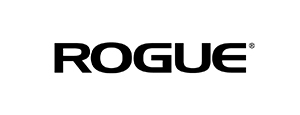IOC Toolkit to safeguard athletes from harassment and abuse in sport
Safe Sport Measures in place at Pyeongchang 2018 to protect athletes The International Olympic Committee (IOC) took a further important step in the protection of athletes from harassment and abuse by launching a toolkit to assist International Sports Federations (IFs) and National Olympic Committees (NOCs) to develop and implement athlete-safeguarding policies and procedures. "As an Olympian, the voices and concerns of athletes resonate with me," said IOC President Thomas Bach. "We praise the athletes' courage to speak out on incidents of harassment and abuse, and we support them in their action. The safety and wellbeing of athletes are paramount to the IOC and the Olympic Movement. It is the responsibility of all of us to keep athletes safe and to guard their rights. Through a collective effort, I am pleased that we can today launch this toolkit to assist sports organisations in this important area of athlete welfare, reinforcing our stance against all forms of harassment and abuse in sport." A step-by-step guide to safeguarding athletes The toolkit was officially presented at the Association of National Olympic Committees (ANOC) General Assembly in Prague, Czech Republic, by IOC Member and Chair of the IOC prevention of harassment and abuse in sport (PHAS) working group HRH Prince Feisal. "This toolkit aims to provide solutions and guidance for sporting organisations based on experience and expertise from all over the world," he explained. "By following the steps in this toolkit, we hope that all sports organisations will implement policies and procedures which are effective and have a true long-lasting positive impact on athlete well-being." Download the toolkit here Building on existing guidelines and medical consensus statements, this step-by-step guide focuses on organisational and competition-specific safeguarding policies. It is reinforced with key research, recommendations and case studies across the Olympic Movement, and offers a solution-based approach. The toolkit is the latest in a series of PHAS initiatives, which have been established by four IOC Commissions (Athletes', Athletes' Entourage, Medical and Scientific, and Women in Sport), in collaboration with NOCs, IFs, external partners such as UN Women, and subject matter experts. The need for the development of resources related to athlete safeguarding was further requested by athletes at the International Athletes' Forum in 2015. To complement the toolkit and ensure that athletes, their entourage and other individuals understand the core components of this sensitive topic, a free bite-size IOC Athlete Safeguarding e-learning course has been developed and launched on the IOC Athlete Learning Gateway. Visit the IOC website for more information related to all the IOC prevention of harassment and abuse in sport initiatives. — Follow IWF: Facebook Instagram Twitter












